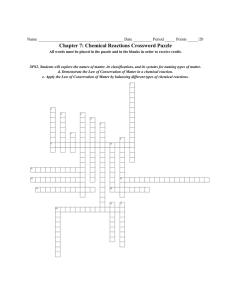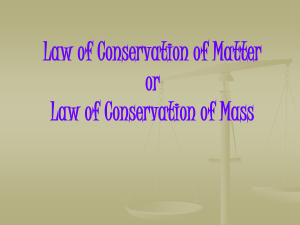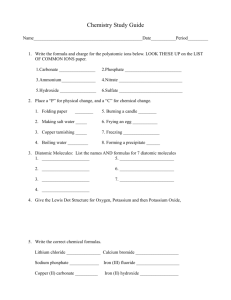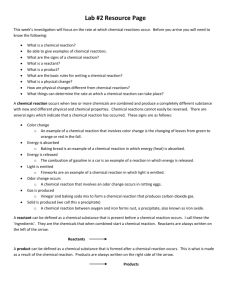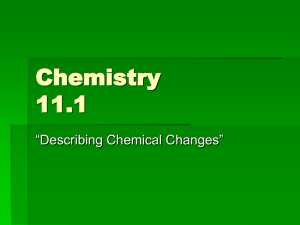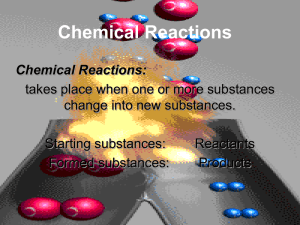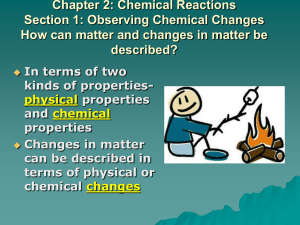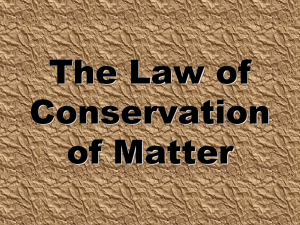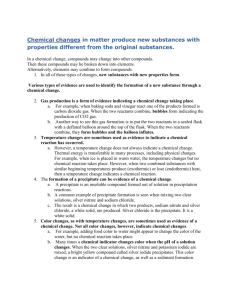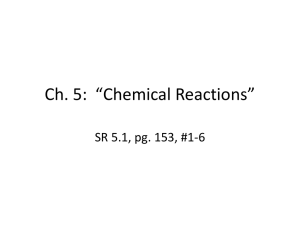Ch. 2.4 – Chemical Reactions
advertisement
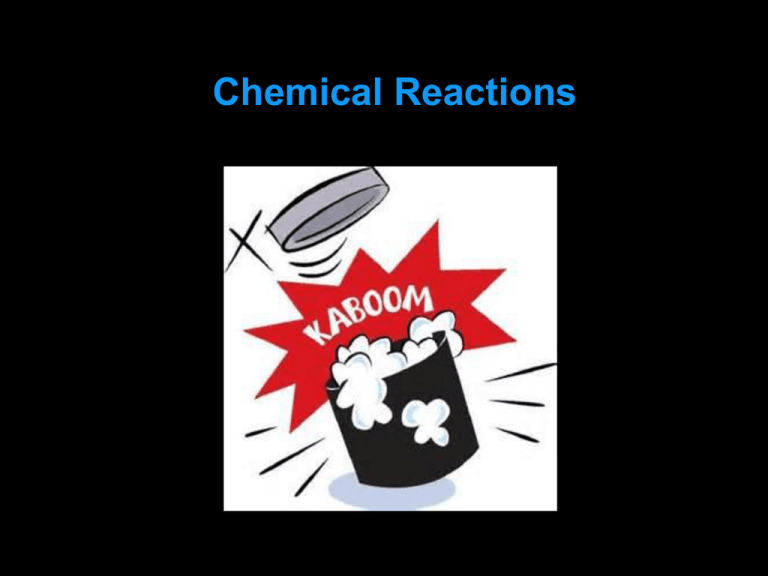
2.4 Chemical Reactions 2.4 3 Chemical Changes What always happens during a chemical change? 2.4 The ability of a substance to undergo a specific chemical change is called a chemical property. Chemical properties can be used to identify a substance. But chemical properties can be observed only when a substance undergoes a chemical change. 2.4 During a chemical change, the composition of matter always changes. (Recall that during a physical change, the composition of matter never changes.) 2.4 A magnet separates iron from sulfur. This is an example of a physical change. 2.4 A mixture of iron and sulfur is heated. The iron and sulfur react and form iron sulfide. This is an example of a chemical change. 2.4 • A chemical change is also called a chemical reaction. • One or more substances change into one or more new substances during a chemical reaction. • A substance present at the start of the reaction is a reactant. • A substance produced in the reaction is a product. 2.4 Recognizing Chemical Changes What are four possible clues that a chemical change has taken place? 2.4 Possible clues to chemical change include: • a transfer of energy (heat produced or absorbed) • a change in color • the production of a gas • the formation of a precipitate. 2.4 A precipitate is a solid that forms and settles out of a liquid mixture. Clues to chemical changes have practical applications. 2.4 Conservation of Mass How are the mass of the reactants and the mass of the products of a chemical reaction related? 2.4 During any chemical reaction, the mass of the products is always equal to the mass of the reactants. 2.4 The law of conservation of mass states that in any physical change or chemical reaction, mass is conserved. The conservation of mass is easily observed when a change occurs in a closed container. 2.4 Section Quiz. 1. Which of the following is a chemical reaction? a. melting of lead b. dissolving sugar in water c. rusting of iron d. crushing of stone 2.4 Section Quiz. 2. Which of the following is NOT a possible clue that a chemical change is taking place? a. a change of state b. a change in color c. production of a gas d. formation of a precipitate 2.4 Section Quiz. 3. During any chemical change, the mass of the products is a. always equal to the mass of the reactants. b. always greater than the mass of the reactants. c. always less than the mass of the reactants. d. sometimes different than the mass of the reactants. END OF SHOW
